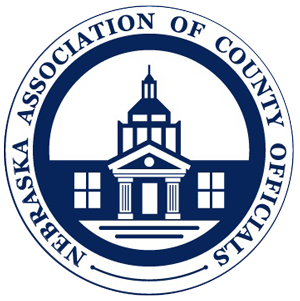
In 1903, the Wright brothers lifted off from Kitty Hawk and completed their first successful powered flight. At the time, their technology and achievements were largely ignored, dismissed, or condemned as too dangerous for both pilots and the people below.
In 1969, U.S. astronauts lifted off from Cape Canaveral and flew to the moon. In only six decades, our public consciousness shifted from disbelief in human flight to utter awe at space exploration.
Just as we eventually embraced air and space travel, we now face the challenge of understanding and responsibly adopting Artificial Intelligence (AI). In September, I attended the National Association of Counties (NACo) Regional Forum Series on AI in Minneapolis. AI is dominating public consciousness across every industry, occupation, and level of governance. Rather than dismiss or condemn this new technology, people in all fields are striving (and struggling) to predict where AI will take us in six months, let alone six decades.
Many people (including me, hence my attendance at the NACo forum) are behind the curve when it comes to the potential benefits and concerns regarding AI. Understanding AI requires grappling with many policy and practice questions, the answers to which are still being worked out. Here are just a few of my thoughts from the forum.
First, public service employees across the U.S. are already using AI. The horse is out of the barn, so instead of trying to close the barn door, we need to figure out how to saddle and properly halter this pony. We can’t ignore AI use; instead, we need to proactively guide how our county officials and employees use AI.
Second, as with any technology, this isn’t a time to fear, but to understand, evaluate, and plan. With respect to the Wright brothers, AI may be the greatest technological advance in our history. However, it’s still just a tool. How and when we use AI remains a matter of education, training, and deployment that complies with best practices and statutes.
Third, we need to seek guidance and information from trusted expert sources. When I was sick earlier this year, I went to the doctor. When my car needed a new transmission last month, I went to the mechanic. When I needed to learn about AI and its impact on county government, I went to NACo’s Forum on AI…and brought back a wealth of resources, such as the AI Toolkit, County AI Innovations, and the County Tech Xchange, an online portal designed to connect county CIOs, IT Directors, and other county IT leadership. These resources are critical tools for county officials navigating this technology’s unfamiliar terrain.
Finally, it’s not necessary (or even reasonable) for all of us to become AI experts. Identify and designate an AI champion in your county. This person doesn’t need to be an AI expert or even a computer whiz, just somebody who can coordinate a committee to identify, analyze, deploy, and constantly re-evaluate the best available AI policies and practices. They don’t have to be an AI expert—they just have to be able to collaborate with the experts.
Though perhaps boasting greater potential, AI is no different than smartphones, the internet, computers, or airplanes. Our job remains the same: how do we use this new technology to improve the lives of the people we serve?

















